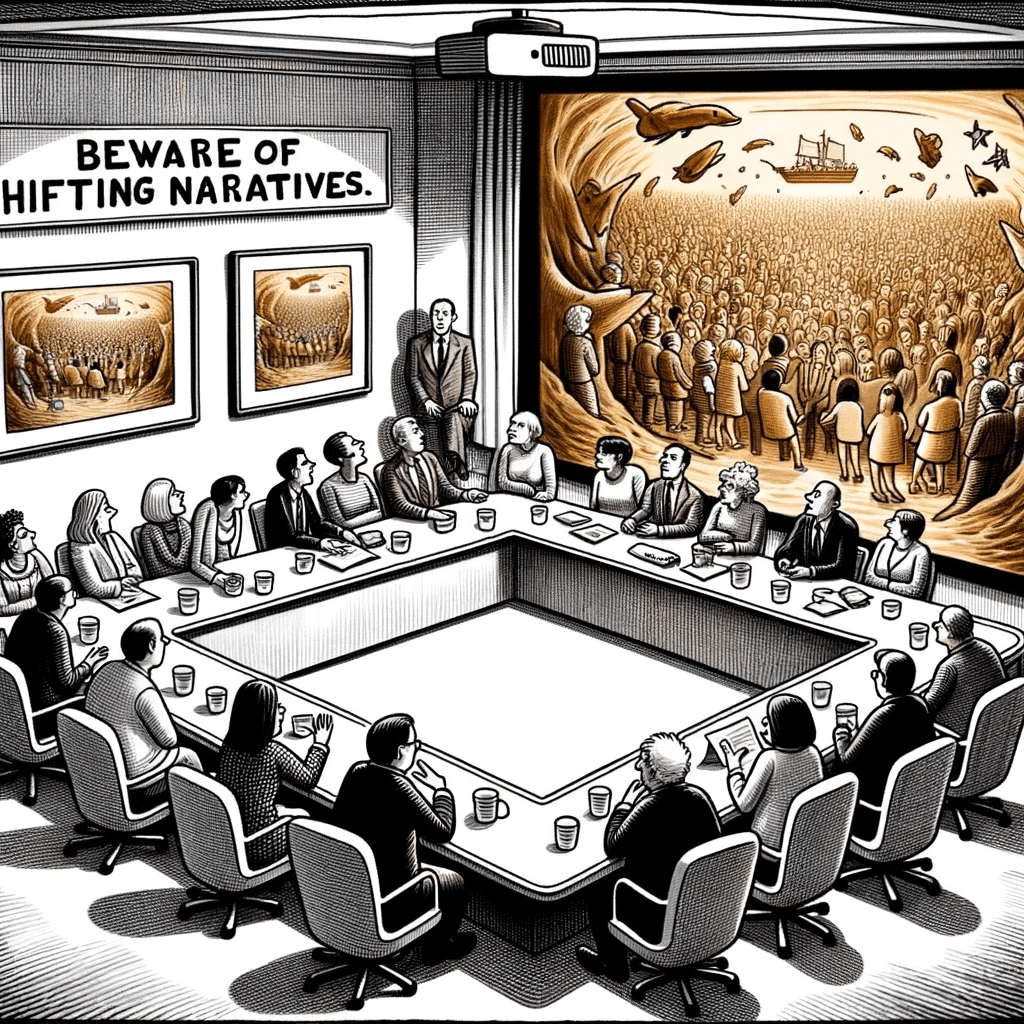
False Memories in the Workplace
Workplace power dynamics can profoundly influence an individual’s perceptions and false memories. The balance of power can sway how we remember events, leading to the creation of false memories. Here’s how:
Coercive Influence:
In instances where managers apply pressure or manipulate situations, employees may be influenced to align their recollections with the narrative presented by those in authority. Source: Kassin, S. M., & Gudjonsson, G. H. (2004). The psychology of confessions: A review of the literature and issues. Psychological Science in the Public Interest, 5(2), 33-67.
Protective Instincts:
In organizations with strong hierarchical structures, employees might modify their memories to shield colleagues or superiors from blame. This protective urge can reshape how they recall certain events. Source: Leo, R. A. (2009). False confessions: Causes, consequences, and implications. The Journal of the American Academy of Psychiatry and the Law, 37(3), 332-343.
Cognitive Dissonance:
In the workplace, the memories of employees can be influenced and altered by authoritative figures who repeatedly communicate a dominant narrative. They start aligning their recollections with the prevailing story to reduce internal conflict. Source: Festinger, L. (1957). A theory of cognitive dissonance. Stanford University Press.
Vulnerability to Suggestion:
Employees who feel less powerful or susceptible to influence may adopt false memories suggested by authority figures.Source: Gudjonsson, G. H. (2003). The psychology of interrogations and confessions: A handbook. John Wiley & Sons.
Workplace dynamics and the balance of power are pivotal in shaping our memories. Leaders must recognize this influence and foster an environment where open dialogue and truth prevail. By understanding the human tendency to mold memories under pressure, leaders can cultivate a more empathetic and genuine organizational culture.
A Coaches Take–Reversing Power Dynamics and False Memory
The dynamic of power and its influence on false memories in the workplace is a nuanced challenge. As a leader and coach, fostering a more balanced and authentic environment is crucial. Here are some recommendations a coach might give:
1. Culture and Environment:
- Promote Open Dialogue: Encourage a culture where employees feel safe to express their perspectives without fear of retribution. This reduces the chances of individuals modifying their memories to fit a dominant narrative.
- Diverse Teams: Encourage the formation of diverse teams. Different perspectives can provide checks and balances, ensuring that one dominant narrative doesn’t overshadow others.
- Ethical Compass: Ground the organization’s approach in principles that stand the test of time. An ethical compass can guide actions and decisions, reducing the chances of manipulative power dynamics.
2. Training and Education:
- Continuous Learning: Emphasize the value of lifelong learning. Equip leaders and employees with knowledge about cognitive biases, the effects of power dynamics, and the formation of false memories.
- Leadership Training: Offer training for leaders on empathetic leadership, active listening, and the psychological aspects of memory.
3. Empowerment and Decision-Making:
- Empowerment: Delegate decision-making power and responsibilities. By giving employees more agency, you reduce the hierarchical gap and the pressures that come with it.
4. Feedback and Reflection:
- Feedback Mechanisms: Implement regular feedback sessions where employees can share their experiences and perceptions. This helps cross-verify events and reduce the chances of false memories taking root.
- Mindfulness and Reflection: Promote practices like mindfulness and journaling. Reflecting on recent events can help solidify accurate memories and provide a reference point for future recollections.
5. Interventions and Tactics:
- Reduce Coercion: Interrogations can be productive and safe only if conducted without any form of coercion. This means refraining from using threats or intimidation to influence someone’s behavior or decisions. To create a constructive and collaborative environment, clear communication and a respectful attitude are crucial. It is also important to note that external interventions can be essential in ensuring the safety of all parties involved.
- External Interventions: Consider bringing in an external mediator or coach to provide a fresh perspective and address deeply rooted power imbalances.
The key lies in recognizing the profound impact of power dynamics and taking proactive steps to create a balanced environment. Organizations can navigate these challenges with empathy, wisdom, and authenticity by focusing on the humanity of leaders and team members. Making a difference starts with understanding and acting on the intricacies of human behavior.



